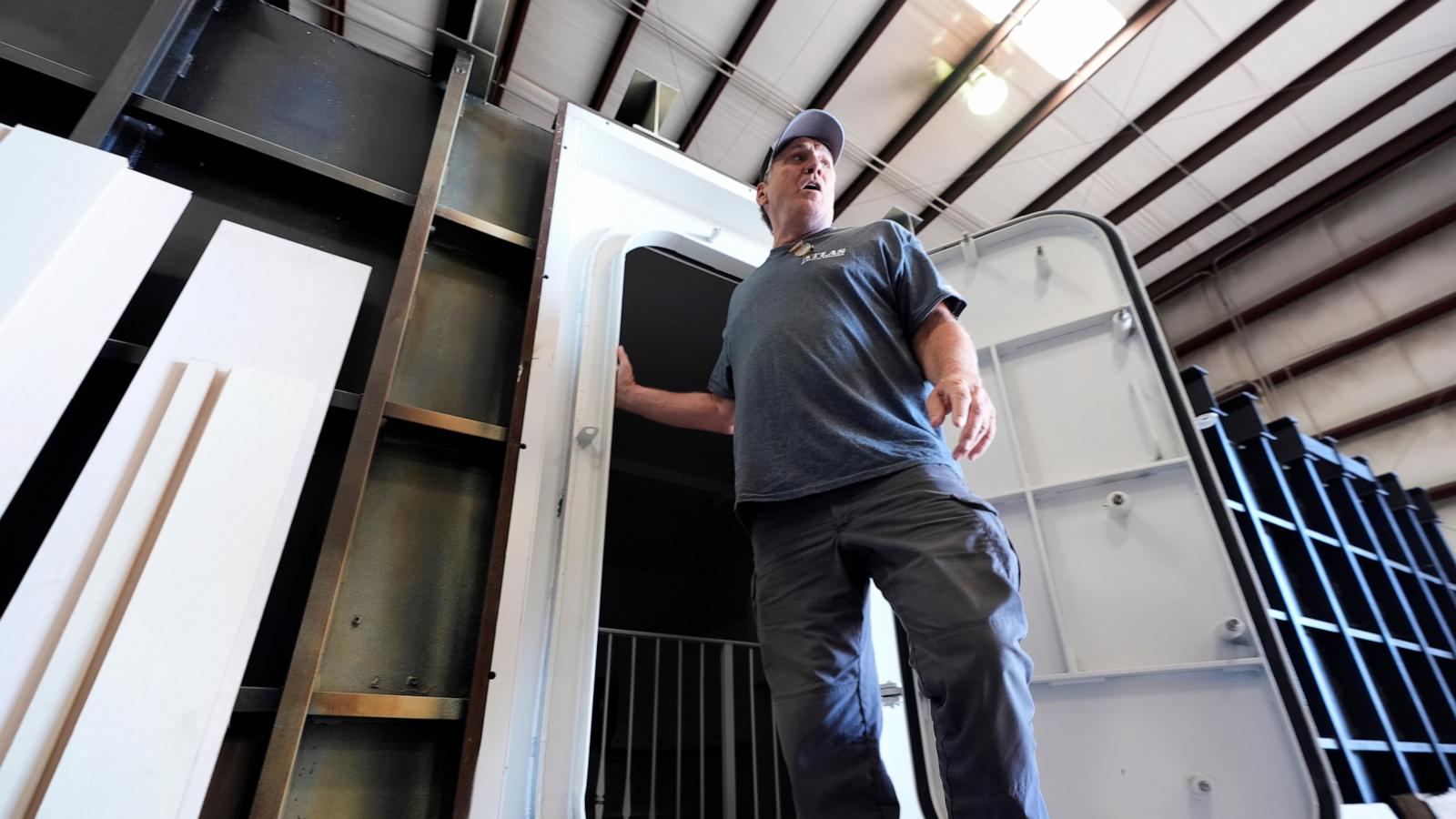Is it time to build a nuclear fallout shelter? With rising global tensions and increasing nuclear threats, more and more people are considering building their own private bunkers. But is this the right decision for you and your family? Let's delve into the surprising world of modern-day bomb shelters, exploring the reasons behind their surging popularity and the critical perspectives that counter this trend. Are these expensive sanctuaries a worthwhile investment for peace of mind or a wasteful distraction from real-world solutions?
The Rise of the Private Bunker: A Shelter from the Storm?
Why Are People Buying Bunkers?
The recent surge in bunker sales isn't just about preparing for a nuclear war; it's about safeguarding against a wide spectrum of threats. COVID-19 lockdowns, the conflict in Ukraine, and even the escalating situation in the Middle East have all contributed to an increasing sense of global insecurity. For many, owning a bunker isn't necessarily about expecting nuclear war; it's about having a secure retreat, a 'safe place' for themselves and their loved ones to ride out any major crisis or unexpected catastrophes, from hurricanes to civil unrest.
This is what motivates those seeking the security and protection that only a private bunker can offer. They can find a wide range of solutions: from small, metal, self-contained units to elaborate, luxury underground mansions that offer the epitome of shelter and safety. The market is flourishing, with projections showing significant growth in the coming years. Some companies have seen unprecedented demand; Atlas Survival Shelters, the world’s largest producer of modern fallout shelters, stated they saw a massive upswing in sales and inquiries after the first ever use of an experimental, hypersonic ballistic missile to attack Ukraine, with four bunkers being sold in a single day!
What Makes a Bunker a Popular Option?
Beyond offering tangible protection from a catastrophic nuclear strike, many see bunkers as investments offering a broad range of defensive advantages. From safeguarding loved ones during natural disasters and civil unrest to simply providing peace of mind amidst unsettling world affairs, there are varied reasons behind purchasing them, ranging from those expecting a societal collapse, to people desiring more resilient, reliable protection that would still be beneficial even without a cataclysmic global event.
The Costs of Security: Investment or Waste?
The price of ensuring personal security varies wildly based on complexity, size, design, installation location, and customizations. Expect to pay anywhere from a couple of thousand to millions of dollars! The most affordable versions offer fundamental protection from radioactive fallout. Meanwhile, the most luxurious designs resemble sophisticated underground houses, complete with multiple bedrooms, kitchens, advanced ventilation systems, and extensive energy reserves. Given such a wide price-range and such large variation, it may seem prudent to ask: is this expensive insurance truly warranted for all?
Critics Corner: The Counterargument
The Fallacy of Survivability
While the allure of a secure sanctuary during a disaster is understandable, some critics express significant concerns about the potential dangers posed by bunkers. Their central argument focuses on the perception of a nuclear war being survivable; critics contend that the focus on survival in such an event ignores the critical, much more important aspects: the necessity to avoid global conflict in the first place, preventing the widespread deployment and proliferation of weapons of mass destruction, thereby mitigating the potential for an event from even occurring in the first place. Therefore, simply focusing on surviving an apocalypse does not address the source problem.
The Focus on Personal Survival vs. Collective Action
Critics further suggest that investment in bunkers detracts from engaging in more substantive means for the common good and benefit of the whole. Many argue that people must collaborate towards more sustainable solutions: eliminating or even simply dramatically reducing the number of nuclear weapons and adopting comprehensive disaster preparedness strategies that emphasize collective action, which should ideally supersede merely focusing on personal safety and security in this context. The sheer logistical complexities associated with managing shelter populations, ensuring water supplies and provisions, maintaining order, and ensuring appropriate waste disposal during an aftermath event only reinforces this argument against bunkers as the answer to the whole.
A Better Approach: Alternative Strategies and Perspectives
Preparing for Fallout, Not Apocalypse
U.S. government disaster-preparedness experts maintain that existing infrastructure, specifically basements in existing structures, can provide adequate protection against the short-term effects of nuclear blasts (mainly radiation fallout), rendering private fallout shelters largely unnecessary, redundant, and, realistically, not useful to a significant extent. The government advocates preparing the public by encouraging people to know what steps should be followed to shelter in place effectively rather than promoting costly investments in privately held bunkers. They provide public guidelines on what can be done to ensure sufficient protection in existing spaces, thereby mitigating the effects.
The Importance of Nonproliferation
Leading nuclear nonproliferation advocates echo these sentiments, suggesting the real answer for protecting our planet, our society, and humankind from a nuclear holocaust does not include focusing on surviving such a conflict, but instead working proactively towards diminishing, drastically cutting, or ultimately entirely removing nuclear weapons and the associated threat of war; thus, rendering individual shelter largely, or even entirely, moot.
Take Away Points
While the decision to build a private fallout shelter is a personal one, it's critical to evaluate whether this approach diverts resources from more impactful strategies that should supersede focusing on the survivability of nuclear war itself. The emphasis should shift to collective initiatives aimed at mitigating global conflicts and avoiding any nuclear catastrophe, ultimately rendering personal shelter preparation less impactful and instead more valuable to place investments into addressing the root causes of such cataclysm. By investing time, resources and energy towards removing and diminishing the potential for such devastation and conflict to even occur in the first place, more gains, benefits, and security would accrue for all.









